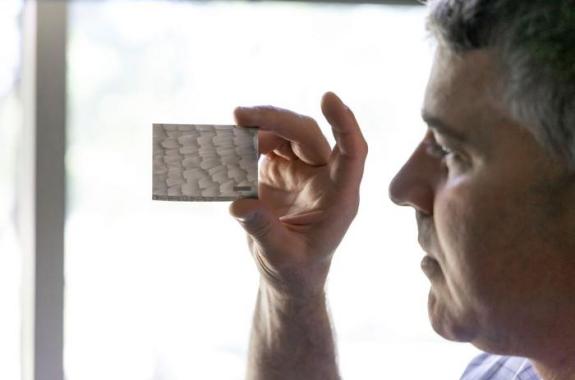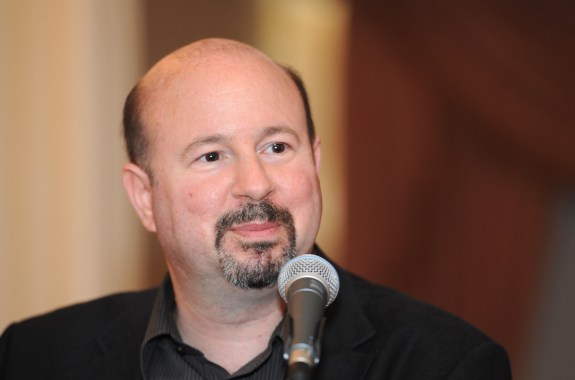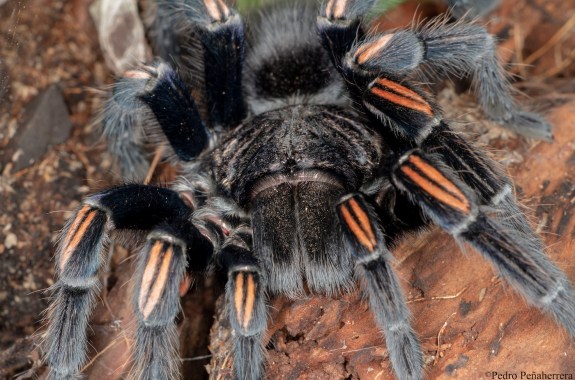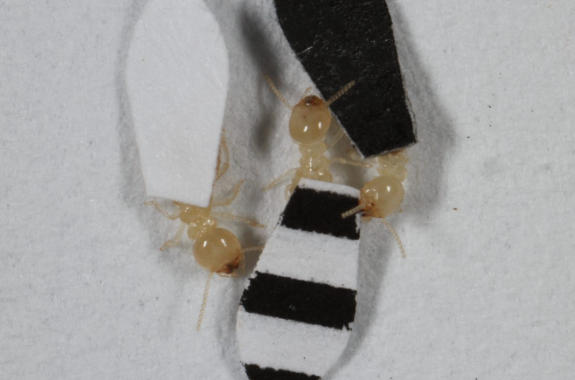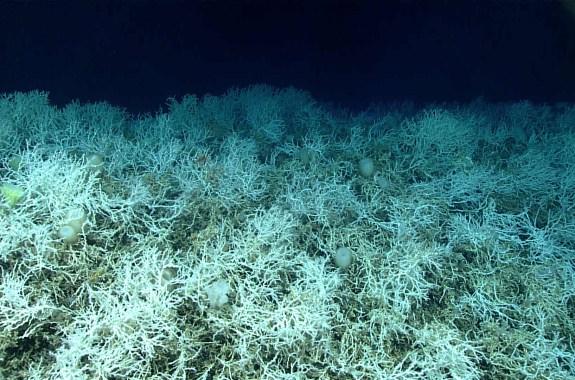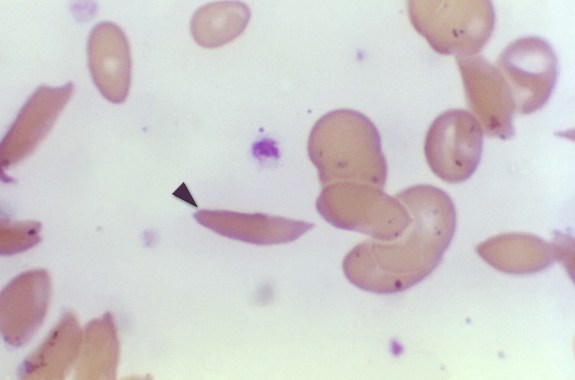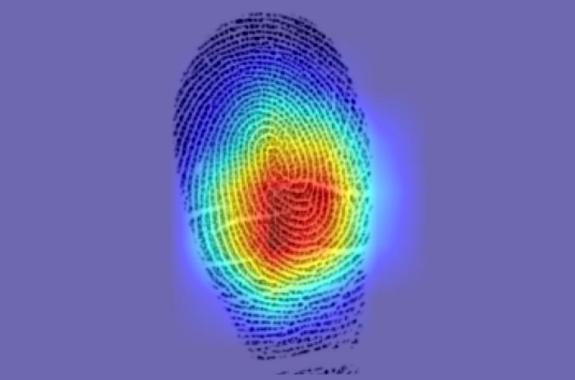Award winning science correspondent and TV journalist Ira Flatow is the host of Science Friday, heard on public radio stations across the country and distributed by WNYC Studios. He anchors the show each Friday, bringing radio and Internet listeners worldwide a lively, informative discussion on science, technology, health, space, and the environment. Ira is also founder and president of the Science Friday Initiative, a 501 (c)(3) non-profit company dedicated to creating radio, TV, and Internet projects that make science “user-friendly.”
Flatow’s interest in things scientific began in boyhood—he almost burned down his mother’s bathroom trying to recreate a biology class experiment. “I was the proverbial kid who spent hours in the basement experimenting with electronic gizmos, and then entering them in high school science fairs,” Flatow says. Mixing his passion for science with a tendency toward being a bit of a ham, Flatow describes his work as the challenge “to make science and technology a topic for discussion around the dinner table.”
He has shared that enthusiasm with public radio listeners for more than 35 years. As a reporter and then news director at WBFO-FM/Buffalo, New York, Flatow began reporting at the station while studying for his engineering degree at State University of New York in Buffalo. As NPR’s science correspondent from 1971 to 1986, Flatow found himself reporting from the Kennedy Space Center, Three Mile Island, Antarctica, and the South Pole. In one memorable NPR report, Flatow took former All Things Considered host Susan Stamberg into a closet to crunch Wint-O-Green Lifesavers, proving they spark in the dark.
His most recent book is entitled Present At The Future: From Evolution to Nanotechnology, Candid and Controversial Conversations On Science and Nature (HarperCollins).
On television, Flatow has discussed the latest cutting edge science stories on a variety of programs. He also hosted the four-part PBS series Big Ideas, produced by WNET in New York. His numerous TV credits include six years as host and writer for the Emmy award-winning Newton’s Apple on PBS, science reporter for CBS This Morning, and cable’s CNBC. He wrote, produced, and hosted Transistorized!, an hour-long documentary about the history of the transistor, which aired on PBS. He has talked science on many TV talk shows including Merv Griffin, Today, Charlie Rose, and Oprah. He has co-starred twice on the CBS hit series The Big Bang Theory.
On the Internet, Flatow has hosted numerous science-related web casts for Discovery Online, The Great Planet Debate, and the American Museum of Natural History in New York.
In print, Ira has authored articles for various magazines ranging from Woman’s Day to ESPN Magazine to American Lawyer. His commentary has appeared in The Los Angeles Times, and Current newspapers. Public speaking and moderating discussions are a regular part of his schedule. He has spoken at Rockefeller University, the World Economic Forum, Sun Microsystems, Hewlett Packard, Calvin Academy, Cal Tech, MIT, Harvard, University of Wisconsin, OSHU, National Inventor’s Hall of Fame, and the Kentucky Author Forum. In 2004, Ira was resident scholar at Woods Hole Oceanographic Institute. His recent honors include: the Isaac Asimov Award (2012,) the Nierenberg Prize (2010), Connecticut Academy of Science and Engineering, membership (2008), National Science Teachers Association Faraday Science Communicator Award (2007), the National Science Board Public Service Award (2005), World Economic Forum Media Fellowship (2005), AAAS Journalism award (2000), Brady Washburn Award (2000), and the Carl Sagan Award (1999). Ira is member of the National Association of Science Writers, AFTRA, and Screen Actors Guild. His hobbies include tennis, golf, gardening (especially orchids), and electronic gadgets. He loves the theater. A native of New York, Flatow now lives in Connecticut.
17:30
Understanding And Curbing Generative AI’s Energy Consumption
As the environmental costs of tools like ChatGPT and DALL-E mount, governments are demanding more clarity from tech companies.
16:15
Making Chemistry More Accessible To Blind And Low-Vision People
Scientists are working to make chemical research more accessible to blind and low-vision students through 3D-printed models and modified equipment.
17:17
Climate Scientist Michael Mann Wins Defamation Case
Michael Mann discusses what the victory means for the public understanding of climate science—and for bad-faith attacks on scientists.
12:09
Syphilis Cases Are Up 80% Since 2018
There has been a boom of syphilis cases, including a 180% increase in congenital syphilis cases, despite other STI levels staying stable.
9:01
Protecting The ‘Satan’ Tarantula and Other Lovable Giant Spiders
A team of scientists in Ecuador is on a mission to describe new-to-science tarantula species to help secure conservation protections.
7:41
If Termites Wore Stripes, Would Spiders Still Eat Them?
Undergraduate researchers pasted striped capes onto termites’ backs to see if a well-known warning sign would fend off predators.
12:14
Revealing The Largest Deep-Sea Coral Reef In The World
The gigantic reef stretches for hundreds of miles in near-freezing waters and total darkness, but it’s bustling with life.
17:26
The FDA Approved The First CRISPR-Based Therapy. What’s Next?
The first CRISPR gene-editing treatment is a cure for sickle cell disease. Are we on the cusp of a gene therapy revolution?
10:00
Is Each Fingerprint On Your Hand Unique?
A new study uses artificial intelligence to show that each of our ten fingerprints are remarkably similar to one another.
7:20
In This Computer Component, Data Slides Through Honey
Honey could be the secret ingredient in building a more eco-friendly “memristor,” which transmits data through malleable pathways.

